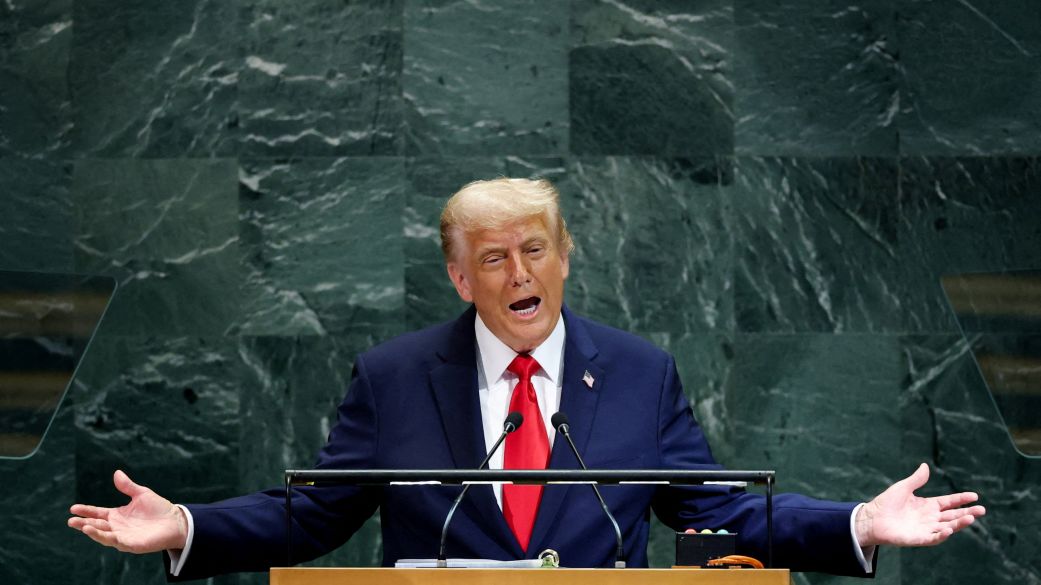Donald Trump’s address to the United Nations offered one of the most unfiltered insights into his worldview, laying bare his ideology in its purest form.
For his supporters, the speech was a showcase of “Trumpism in its truest sense.” For critics, however, it was a striking display of “Trumpism gone too far.”
Speaking for nearly an hour, Trump moved across the globe verbally, targeting opponents and their ideas one after another. He began by turning inward, celebrating the United States and his own leadership. Calling the current era a “golden age” for America, he repeated his heavily disputed claim of having ended seven wars — a feat he argued should earn him a Nobel Peace Prize.
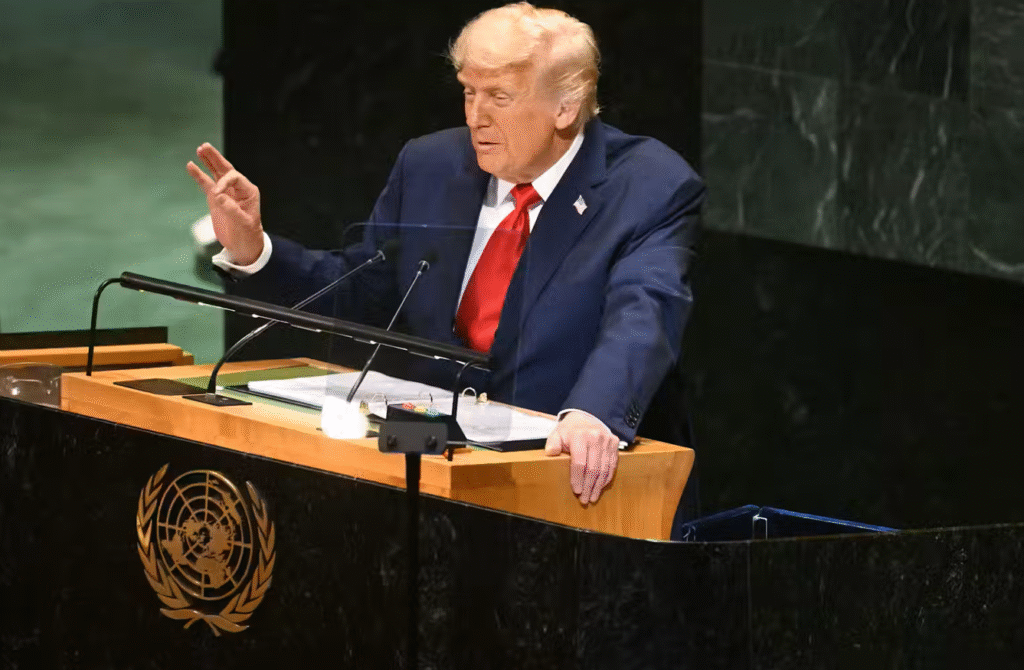
From there, Trump shifted his focus to the UN itself. He criticized the organization for failing to support his peace initiatives, questioning its relevance and purpose. While acknowledging its potential, he dismissed it as ineffective, accusing it of producing nothing more than “strongly worded letters” that never solved conflicts. “Empty words don’t end wars,” he declared.
He went further, blasting the UN’s support for asylum seekers attempting to enter the U.S., saying: “The UN is supposed to stop invasions, not create and fund them.” Even logistical hiccups didn’t escape his ire — Trump mocked the faulty teleprompter and a broken escalator that marred his visit.
While his remarks sounded extreme, they touched on frustrations shared by many analysts. Critics of the UN often point to paralysis within the Security Council and its sprawling bureaucracy as reasons why the body struggles to effectively resolve global conflicts today.
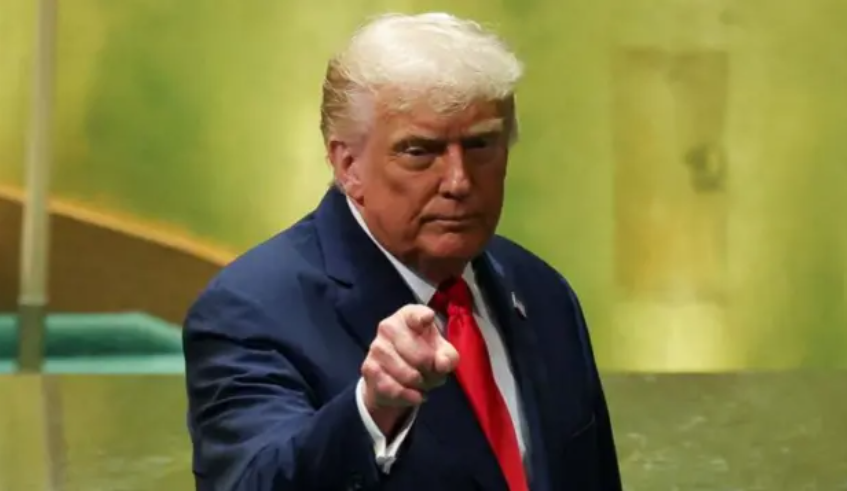
On another level, Trump himself can be viewed as both a symptom and a driver of the UN’s struggles. He has long argued that global crises are better resolved by strong leaders striking deals directly, rather than relying on multilateral institutions like the UN to coordinate collective action. Reflecting this belief, his administration slashed U.S. contributions to the UN, forcing the organization to scale back humanitarian programs worldwide.
Trump reserved some of his harshest criticism for Europe. He lambasted the continent for embracing renewable energy and for what he described as reckless immigration policies.
“Europe is in serious trouble,” he declared. “They have been invaded by illegal migrants on a scale never seen before… Immigration and these suicidal energy ideas will spell the end of Western Europe.”
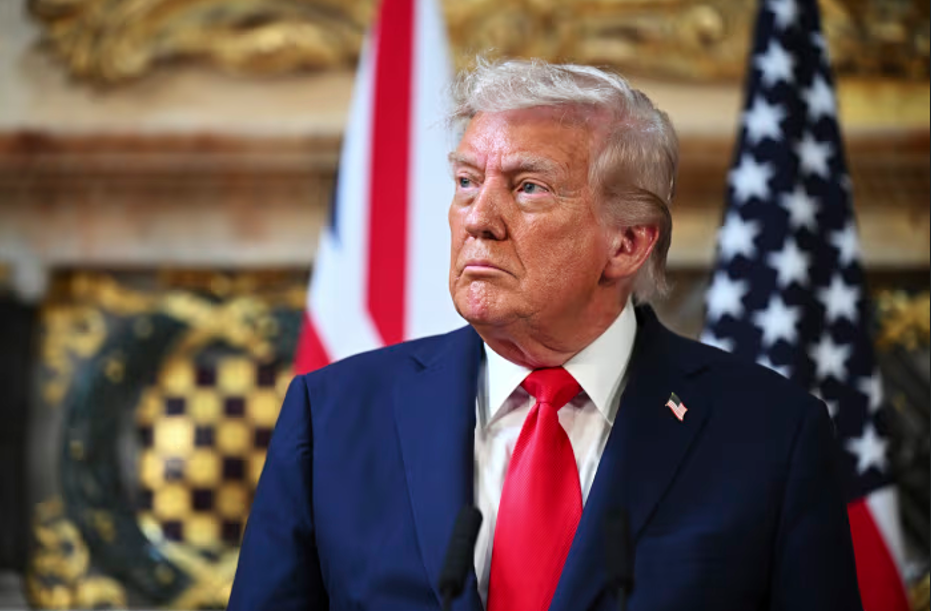
His dismissal of climate change drew audible shock in the hall. Calling it “the greatest con job ever perpetrated on the world,” Trump claimed green policies were burdening Europe with sky-high energy costs, especially compared to fossil fuels. He singled out the UK government for introducing new taxes on North Sea oil, warning: “If you don’t escape the green energy scam, your country will collapse.”
Trump insisted his critique came from a place of admiration: “I love Europe. I love the people of Europe. And I hate to see it devastated by energy and immigration. This double-headed monster is destroying everything in its path… in the name of political correctness, you are erasing your heritage.”
That last point tied into remarks he had made just a week earlier during his state visit to Britain, when he emphasized the need to defend the traditions and values of what he called “the English-speaking world.”
"Trump’s UN speech makes it clear: the world can no longer look to the US for strong leadership. US president’s speech made a mockery of UN values & highlights the need for strong anti-Trumpian alliances"
— William Dalrymple (@DalrympleWill) September 24, 2025
https://t.co/v2IsHqSyU8
Trump’s critique of Europe carried a clear cultural undertone, rooted in his belief that unchecked immigration threatens what he views as the continent’s Judeo-Christian heritage. It was no surprise, then, that the leader of an openly religious administration used his UN platform to stress: “Let us protect religious liberty, including for the most persecuted religion on the planet today — it’s called Christianity.”
On policy, his most direct warning came over Russia’s war in Ukraine. Trump accused Vladimir Putin of damaging Russia’s global image by prolonging the conflict, and he threatened to introduce “a very strong round of powerful tariffs” if the bloodshed continued. He also chastised European nations for purchasing Russian energy, claiming he had only recently learned that some still were.
In reality, only Hungary and Slovakia remain significant European buyers of Russian oil. Diplomats suggested Trump was using this narrative as cover to avoid confronting India and China, both of which are importing vast amounts of discounted Russian energy — a fact Trump himself acknowledged.
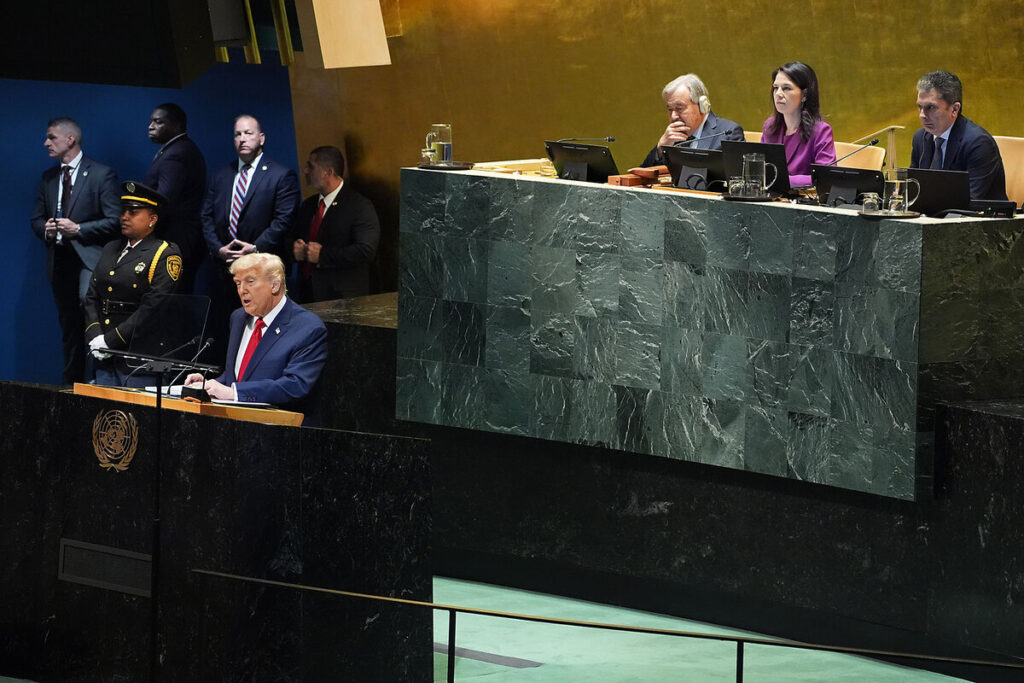
More striking, however, was what came after his speech. In a social media post, Trump openly floated the possibility of Ukraine regaining all of its lost territory — the first time he had expressed such optimism. His portrayal of Russia as a “paper tiger” rather than a true military power dealt a symbolic blow to Putin, who is acutely sensitive to any dismissal of Russia’s global status. Analysts described this as further evidence of Trump inching toward a tougher stance on Moscow.
Still, Trump’s words came with caveats. His optimism followed a meeting with Ukraine’s President Volodymyr Zelensky, and his suggestion that Kyiv could win back land hinged on European Union and NATO support. Notably absent was any mention of American military involvement. Given the grinding nature of the conflict, most observers agree Ukraine is unlikely to retake territory without substantial U.S. backing.
The speech, then, was quintessential Trump: a defense of nationalism over multilateralism, a rejection of global institutions, and a barrage of bold — and sometimes questionable — assertions.
Six years ago, his claims at the UN were often met with laughter. This time, the hall was largely silent as he declared with confidence: “I am really good at this stuff. Your countries are going to hell.”
Also Read :
US changes driving license rules 2025 : New renewal criteria across these age groups
Lindsey Halligan Appointed as Virginia’s New Federal Prosecutor by Trump

